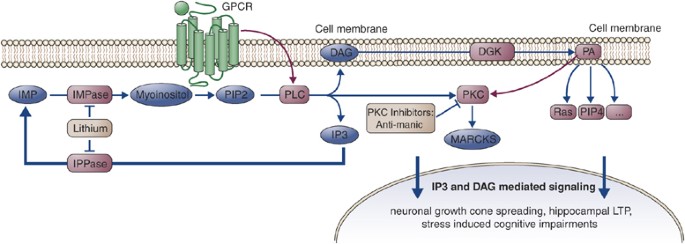Diacylglycerol kinase (DGK) is a vital enzyme that plays a crucial role in the regulation of cellular signaling events. By modulating the levels of diacylglycerol (DAG), an important signaling molecule, DGKs influence a range of physiological functions, including immune response, metabolism, cell survival, and growth. Given their importance in cellular signaling pathways, DGKs have emerged as promising therapeutic targets for a range of diseases, including cancer, inflammation, and autoimmune disorders.
The DGK Inhibitors Library is a powerful resource that enables researchers to probe the functional role of DGKs and develop new therapeutic interventions. This specialized library is a collection of small molecules that selectively target and inhibit specific DGK isoforms, providing researchers with a potent tool to study DGK function and pathological conditions mediated by DGKs.
DGK inhibitors exert their effects by selectively blocking the activity of specific DGK isoforms, resulting in the accumulation of DAG and downstream signaling events. These inhibitors are structurally diverse and can vary in their potency, selectivity, and pharmacokinetic properties. By utilizing inhibitors from the DGK Inhibitors Library, researchers can investigate the specific functions of DGK isoforms and gain insights into their role in disease pathology.
The use of DGK Inhibitors Library has revolutionized our understanding of DGK function, particularly in the context of immune response and cancer. For instance, DGKα has been found to play a key role in the development of autoimmune disorders, including multiple sclerosis and rheumatoid arthritis. By developing selective inhibitors of DGKα, researchers can explore the precise role of DGKα in immune modulation and identify potential interventions for autoimmune disorders.
Similarly, DGKε has been implicated in a range of cancer types, including breast, lung, and pancreatic cancer. Preclinical studies have shown that the inhibition of DGKε using inhibitors from the DGK Inhibitors Library can significantly reduce tumor growth and invasion, highlighting the potential of DGK inhibitors as a novel cancer treatment strategy.
The DGK Inhibitors Library also provides a starting point for the optimization of DGK inhibitors, enabling the development of more potent and selective compounds with enhanced pharmacokinetic properties. By utilizing these advanced compounds, researchers can further explore the potential of DGK inhibitors as therapeutic agents and advance towards the development of effective drugs.
However, challenges remain in the development of DGK inhibitors. DGKs are a diverse group of enzymes with complex regulation mechanisms, and the selectivity and potency of inhibitors can be influenced by isoform-specific structural features. Additionally, the ability of inhibitors to penetrate cell membranes and reach intracellular DGK targets is critical for their efficacy as drugs.
Despite these challenges, the DGK Inhibitors Library represents a significant step towards understanding the complex role of DGK enzymes in health and disease. With increased research and development, DGK inhibitors have the potential to transform therapeutic interventions in various pathological conditions, including cancer and autoimmune disorders.




